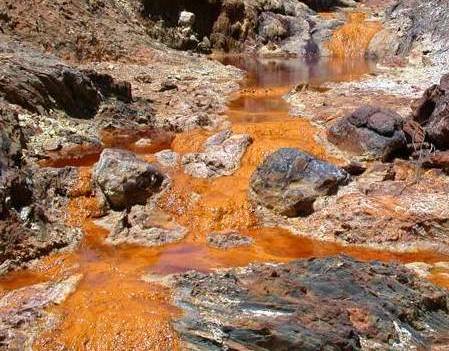For many years, I had known that the United States had tested their atomic bombs on our nation's mainland. For example, I knew that the first atomic bomb to be detonated was done so in Alamogordo, New Mexico on July 16, 1945. In our history books, we had been taught that all testing was done in desolate areas in which no one was living in. Until I read Terry Tempest William's piece The Clan of One-Breasted Women, I assumed that the government was telling the truth. The chilling descriptions of women becoming bald "as cytoxan, cisplatin, and adriamycin we injected into their veins," along with the "green-black" bile that they vomited got me thinking about another ecological disaster happening in our right now: coal-mining.

Appalachia has always existed in a tough spot. Sandwiched in between the Midwest and the Far East, they remain one of the most isolated and impoverished communities in America. Many of the people living in Appalachia, especially those in states such as West Virginia, depend mainly on the coal industry for a living. It really is a double edged sword. We are all aware of the negative impacts that coal brings to the environment. The burning of coal increases greenhouse gas emissions, and it can also result in smog, such as the one seen in London in 1952. However, what is less commonly talked about is the effects of coal mining on the people of Appalachia. The waterways that are used by Appalachians for common daily practices become polluted, and sometimes, even become unusable. According to the EPA, more than 2,000 miles of rivers and streams have become completely filled up and buried by the debris of rock after explosions used in coal mining. Iron can also be found in high quantities in the tap water, causing the water to turn orange and become unusable. It stains bathtubs, kitchen sinks, and washing machines. It also stains the health and livelihoods of the people living there. Cancer rates have skyrocketed in the region. According to Dr. Wesley Lafferty, many of the people he sees in the area suffer from "rashes, restrictive airway disease, dermatitis, and generic skin disease."

Yet, the people of Appalachia must continue slowly killing themselves, mainly because they have no other option. Even as the coal industry slowly but surely whittles away, there are no other alternatives for Appalachians to turn to. Instead of introducing new industries to stimulate the economy of states such as West Virginia and protect the people, the US government has done the exact opposite. Senators such as Joe Manchin work tirelessly to ensure that the waterways of West Virginia continue to be polluted with debris of coal mining, poisoning his own people. One of Donald Trump's 2016 campaign goals was to revive America's coal industry. And even under Joe Biden, who has vowed to make America cleaner and transition to greener energy sources, American power plants burned 23% more coal last year than they did in 2020. Our government is aware of the plight of the Appalachians. They just don't care.
This is really interesting because even though we are told that America is the "land of the free," we see many examples of the government trying to protect their reputation by covering things up. This is concerning and the only way to make change happen is to spread the word about the wrongdoings of our country.
ReplyDeleteIt was interesting to read since (like you mentioned) I did not really think about the effects of coal mining on the people before; I mostly thought about the pollution due to the coal usage itself. I think the evidences/numbers and pictures that you included really strengthens your writing as well.
ReplyDeleteThis post was very interesting and I really liked how you related the text we read in class to the Appalachians and coal mining. I also really like your inclusion of many facts and research data as well as pictures. Great Job!
ReplyDelete